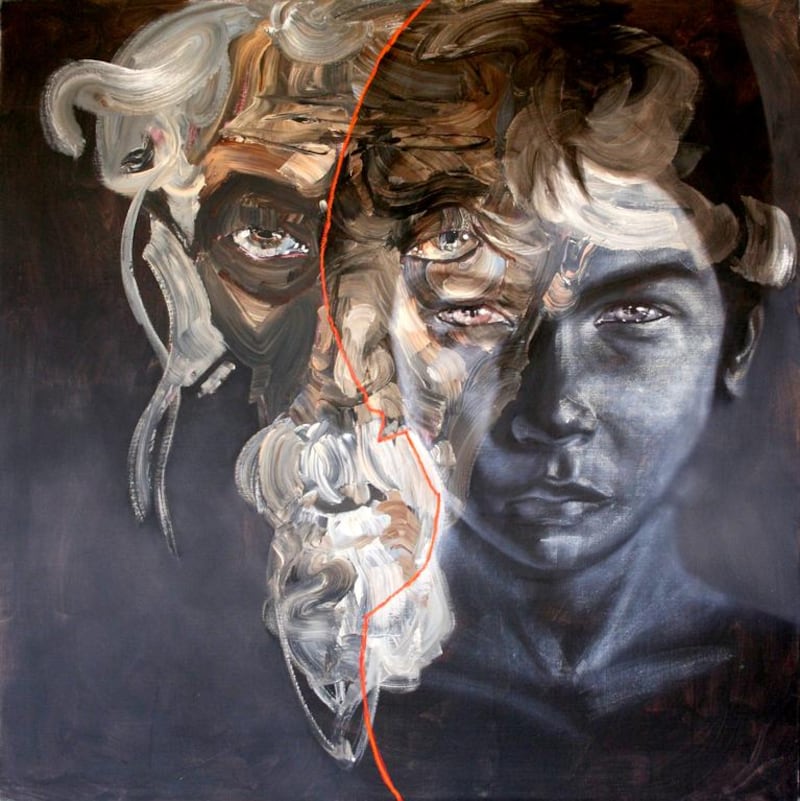Two years ago, Sara Shamma and her children were forced to leave their home in Damascus and flee to Lebanon.
She documented her experience in a collection of 12 oil and acrylic portraits titled Diaspora, which were unveiled last month at Art Sawa in Dubai International Financial Centre.
Nearly half the paintings – rendered in chunky, laden brush strokes that lend a sense of urgency and movement – feature her son and daughter, their deep, watery eyes emitting a kind of sadness.
But Shamma sees them differently.
“I don’t think they are sad, they are just real,” she says. “Together, these paintings reflect my experience of diaspora, which was of course filled with fear and anxiety from having to leave my country because of war and also a lot of questions. However, I try to be optimistic and positive about my situation and I hope the paintings show this.”
In one portrait, Shamma’s son is realistically rendered on one side of the canvas, his little hand clutching a pink toy, but one side of his face disappears into contoured brush strokes – as if he is being erased.
In the foreground, a violent streak of red paint slices the image and it is impossible not to relate it to the horrors of war.
Shamma describes her process as unplanned and instinctive.
“I paint from the subconscious without knowing what the outcome will be,” she says. “I go to the canvas and paint freely and, in the same way that I paint, I would like the viewer to be surprised. I would like you to see whatever you want and I would like it to touch you and penetrate your subconscious.”
In many of the works, the portraits are divided into two, either with a clear line or by painting a shadow of the figure, which emerges from or sits atop the original.
“There are a lot of questions that come with diaspora,” she says. “But as I said, I don’t want to ponder over the negativity. Feeling negative won’t help you live better, so I think we need to be strong.”
Given the subject of the show and the current climate, there is no escaping the political undertones, but Shamma says she is “not interested in making a political statement, although, of course, politics will affect us ... I am interested in the human condition and the different state of people”.
“The most important thing for me is that I hope people in diaspora try to find something good, try to learn new skills and new experiences from their new country to use it in rebuilding their own country when and if they come back.”
Born in 1975 in Damascus into a family of intellectuals, Shamma decided to train as a painter at the age of 14. She graduated from the Faculty of Fine Arts at the University of Damascus in 1998 and was exhibiting across the region fewer than three years later. In 2004, she won fourth prize in the BP Portrait Award at The National Portrait Gallery, London. Her work can be found in the collections of The National Museum of Damascus, the British Council, Damascus, and The Spanish Cultural Center, also in Damascus.
Diaspora runs until November 30 at Art Sawa in DIFC. Visit www.artsawa.com for details
aseaman@thenational.ae





